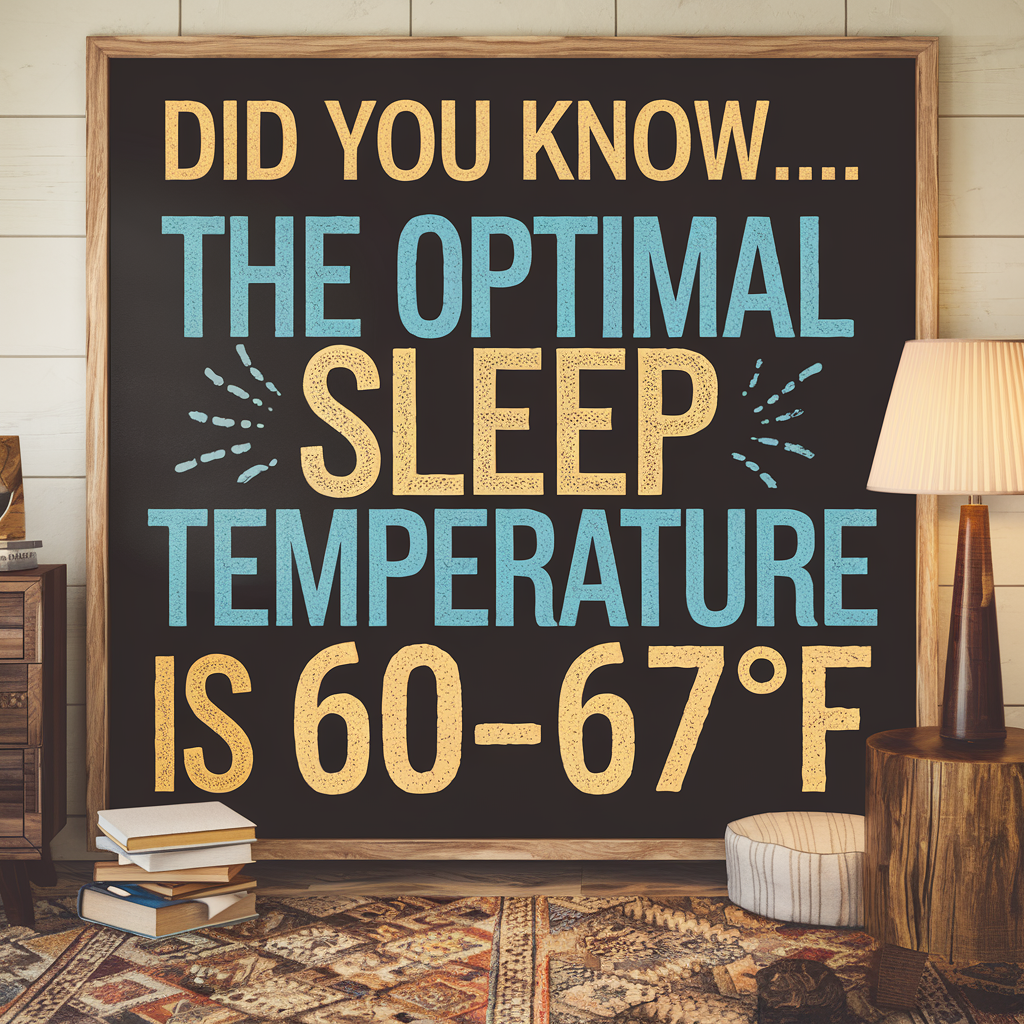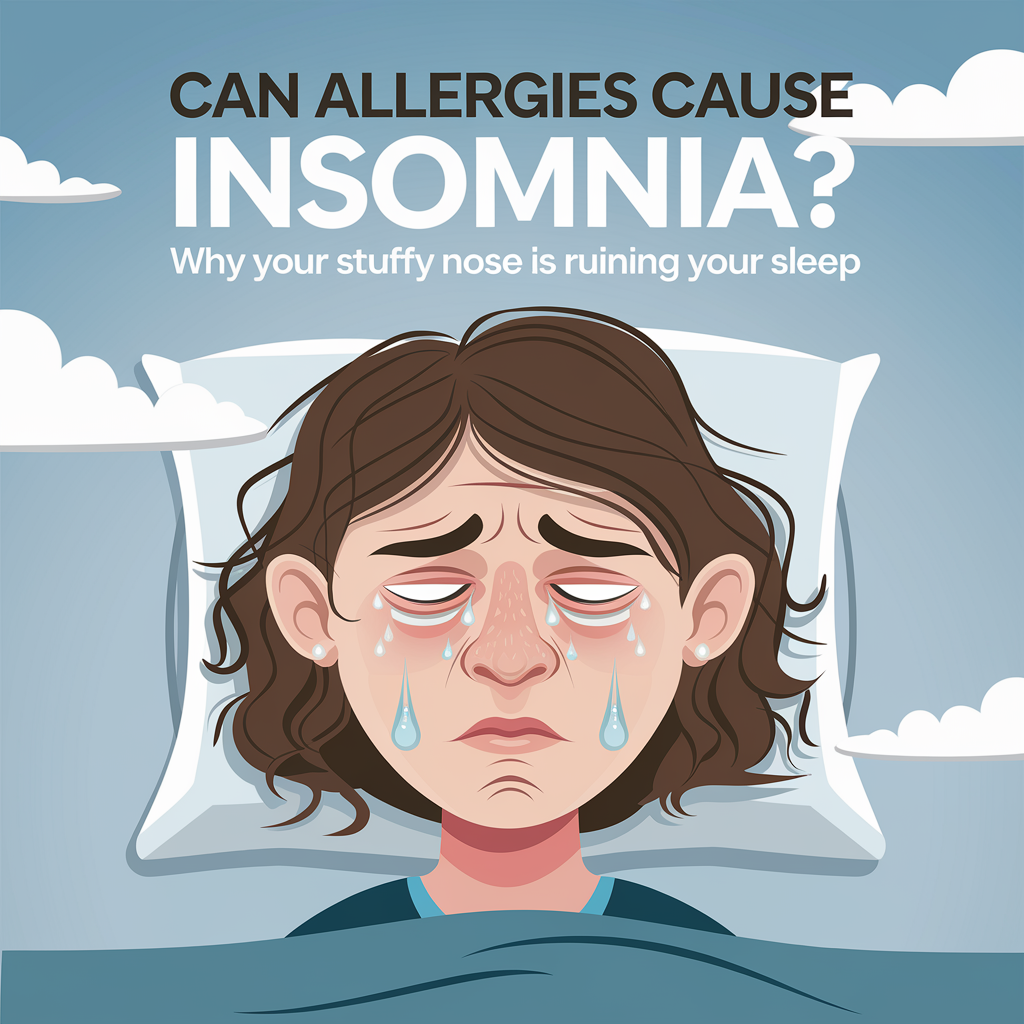
Can Allergies Cause You to Not Sleep?
If you’ve ever spent the night tossing and turning, unable to breathe through your nose or constantly rubbing your itchy eyes, you’re not alone. Allergies and insomnia go hand in hand, making it nearly impossible to get the deep, restful sleep your body needs.
Allergies affect sleep in multiple ways:
✔ Nasal congestion makes breathing difficult, leading to snoring, frequent wake-ups, and poor oxygen intake.
✔ Histamine overload triggers inflammation and sleep disruptions since histamine is also a neurotransmitter involved in wakefulness.
✔ Postnasal drip can cause coughing or a scratchy throat, keeping you up all night.
The Allergy-Insomnia Cycle
The worst part? Poor sleep makes allergies worse. Lack of rest weakens the immune system, making your body more sensitive to allergens, which in turn leads to even worse sleep the next night.
If you’ve ever had a few drinks before bed, you may have noticed that alcohol withdrawal causes similar sleep struggles. Alcohol Withdrawals Insomnia: Why You Can’t Sleep After Quitting Drinking explains how both alcohol and allergens disrupt the body’s natural ability to fall and stay asleep.
So, can allergies actually cause full-blown insomnia? Let’s break that down next.
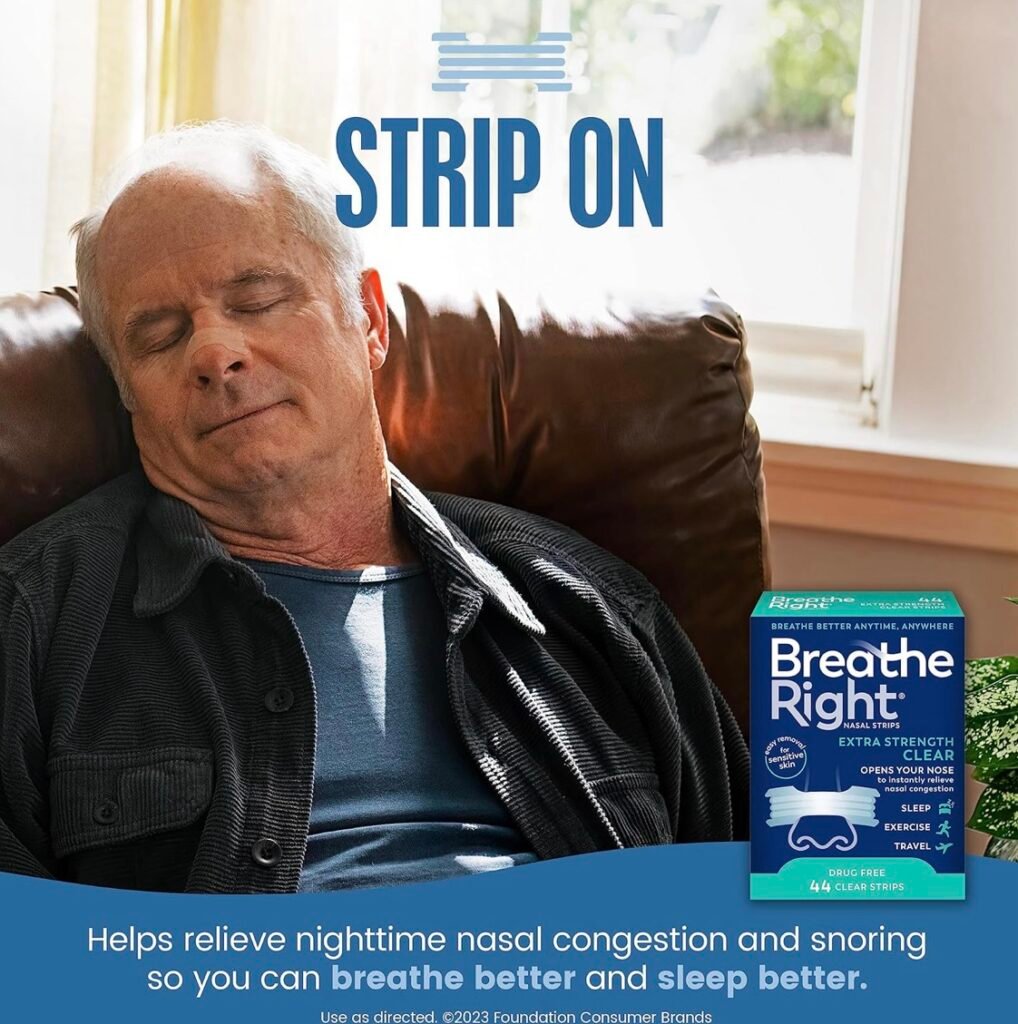
Can Insomnia Be an Allergic Reaction?
Most people associate allergies with sneezing, itchy eyes, and congestion, but did you know they can directly trigger insomnia? Allergies don’t just make you uncomfortable—they actually interfere with the body’s natural sleep processes on a deeper level.
How Allergic Reactions Disrupt Sleep
When you’re exposed to allergens, your body releases histamines as part of an immune response. While histamines help fight allergens, they also play a role in wakefulness and alertness. This means that an allergy flare-up can:
✔ Keep your brain wired and alert, making it harder to fall asleep.
✔ Trigger stress hormones like cortisol, increasing restlessness.
✔ Cause nighttime anxiety, leading to racing thoughts and shallow sleep.
For some, food allergies or sensitivities can also lead to delayed reactions that cause nighttime wake-ups. Gluten, dairy, and artificial additives are common triggers that can cause inflammation and sleep disturbances without obvious digestive symptoms.
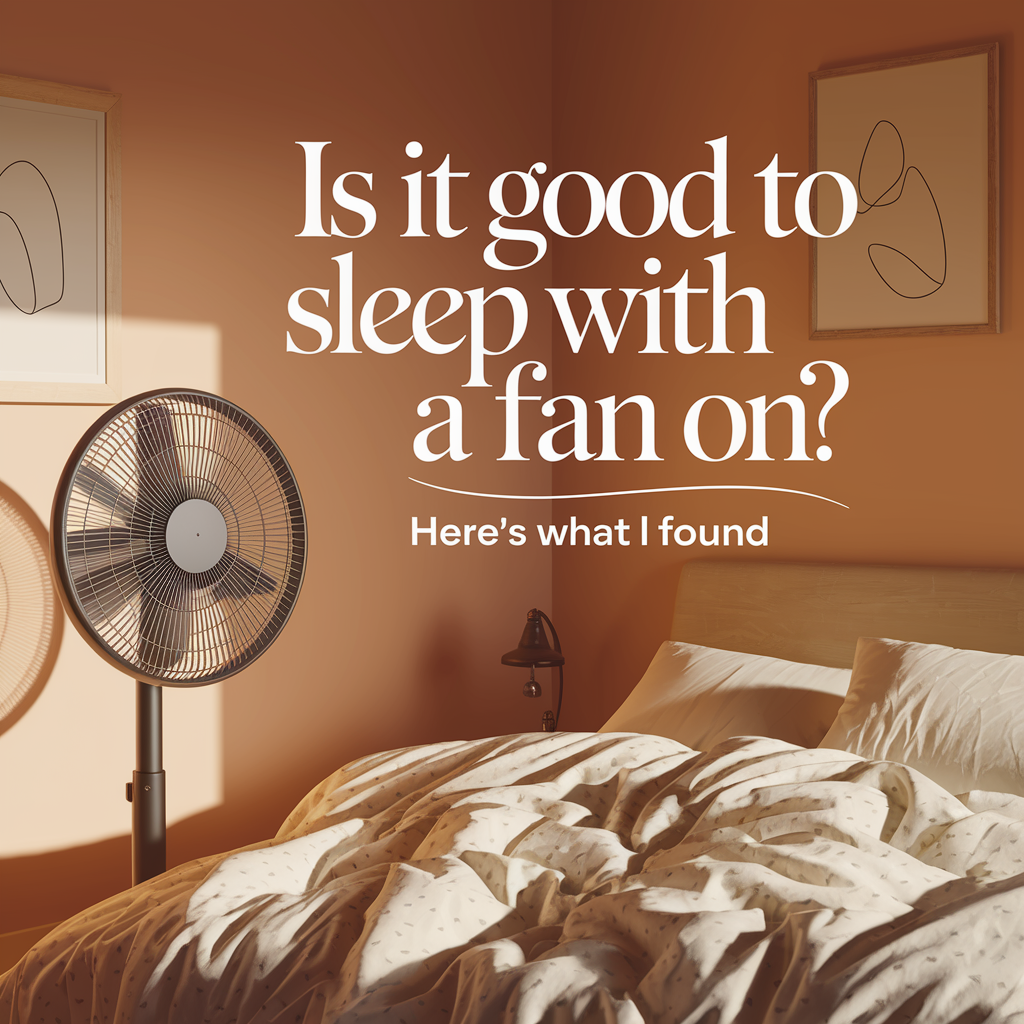
Could Your Insomnia Be Caused by Allergies?
If you’ve been struggling with unexplained chronic insomnia, you might want to consider hidden allergies or intolerances as a culprit. This is especially true if your insomnia is accompanied by:
✔ Nighttime congestion or coughing
✔ Itchy skin or unexplained hives
✔ Stomach discomfort or bloating before bed
✔ Frequent headaches or dizziness in the morning
While antihistamines can temporarily relieve symptoms, treating the root cause is the best way to get long-term relief. If your symptoms are unpredictable, an elimination diet or allergy test may help uncover unexpected triggers.
Now, let’s take a look at some unusual allergy symptoms that might be messing with your sleep.
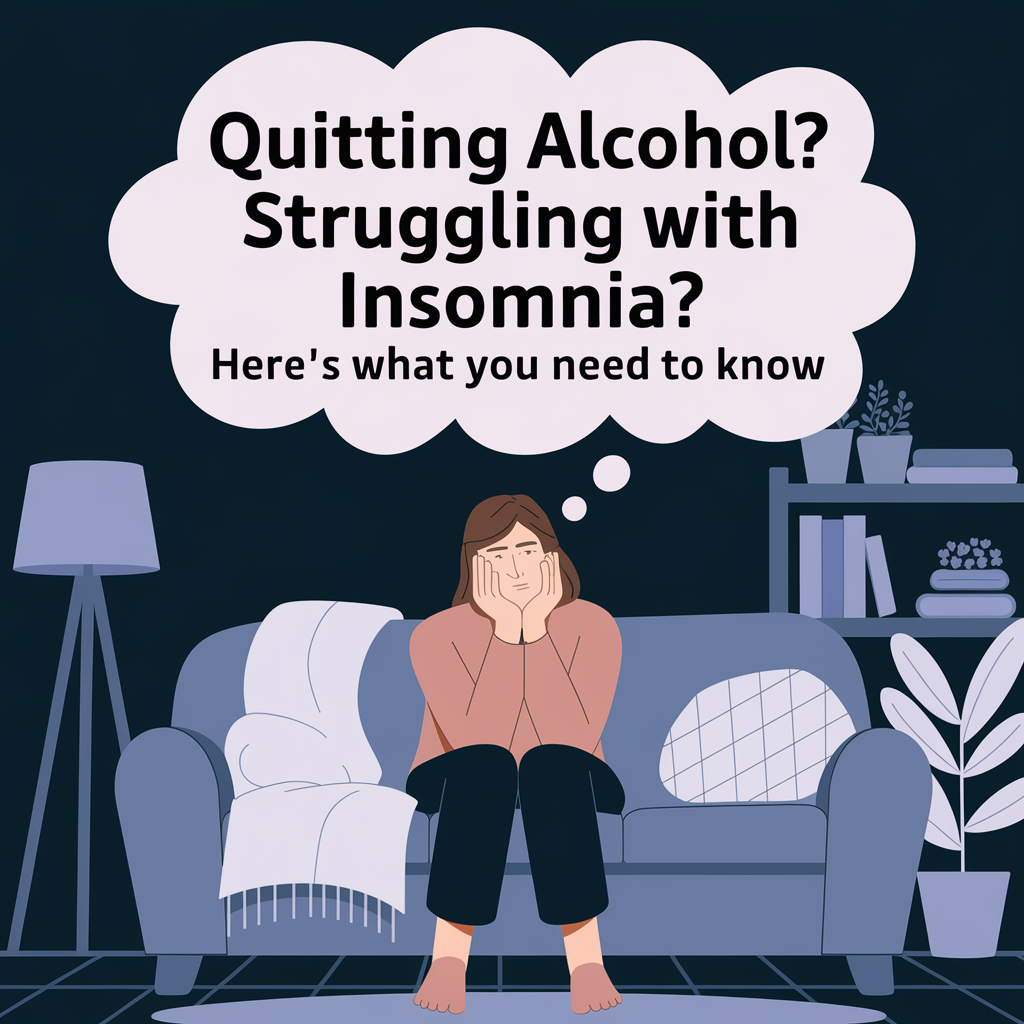
What Are the Symptoms of Weird Allergies That Disrupt Sleep?
Most people expect allergies to cause sneezing, itchy eyes, and a runny nose, but some allergic reactions are more subtle—especially when they show up at night. If you’re struggling with unexplained insomnia, your body might be reacting to allergens in ways you don’t realize.
Lesser-Known Allergy Symptoms That Affect Sleep
✔ Unexplained night sweats – Allergic reactions can trigger inflammation and body temperature fluctuations, causing excessive sweating at night.
✔ Restless legs or muscle twitching – Some allergies affect the nervous system, leading to leg discomfort or muscle spasms that make it hard to fall asleep.
✔ Chronic headaches or brain fog – Allergies can cause sinus pressure and low oxygen intake, leading to morning headaches and fatigue.
✔ Increased nighttime anxiety – Histamines don’t just cause congestion—they also impact neurotransmitters in the brain, making some people feel restless and anxious at night.
Common Hidden Allergens That Could Be Ruining Your Sleep
- Dust mites – These microscopic creatures thrive in pillows and mattresses, triggering congestion and asthma-like symptoms at night.
- Mold spores – Found in damp areas, mold can cause respiratory irritation that worsens when lying down.
- Pet dander – Even if you’re not highly allergic, pet fur and dander build up in bedding, affecting sleep quality.
- Fragrances & detergents – Some scented laundry detergents or fabric softeners contain chemicals that irritate sensitive skin and sinuses.
How to Tell If Allergies Are Behind Your Insomnia
If you notice that your sleep problems get worse in certain environments—like when sleeping at a hotel, a friend’s house, or in a different season—allergens may be to blame.
For many people, nasal congestion is the biggest factor disrupting their sleep. So, can a simple stuffy nose really cause full-blown insomnia? Let’s dive into that next.
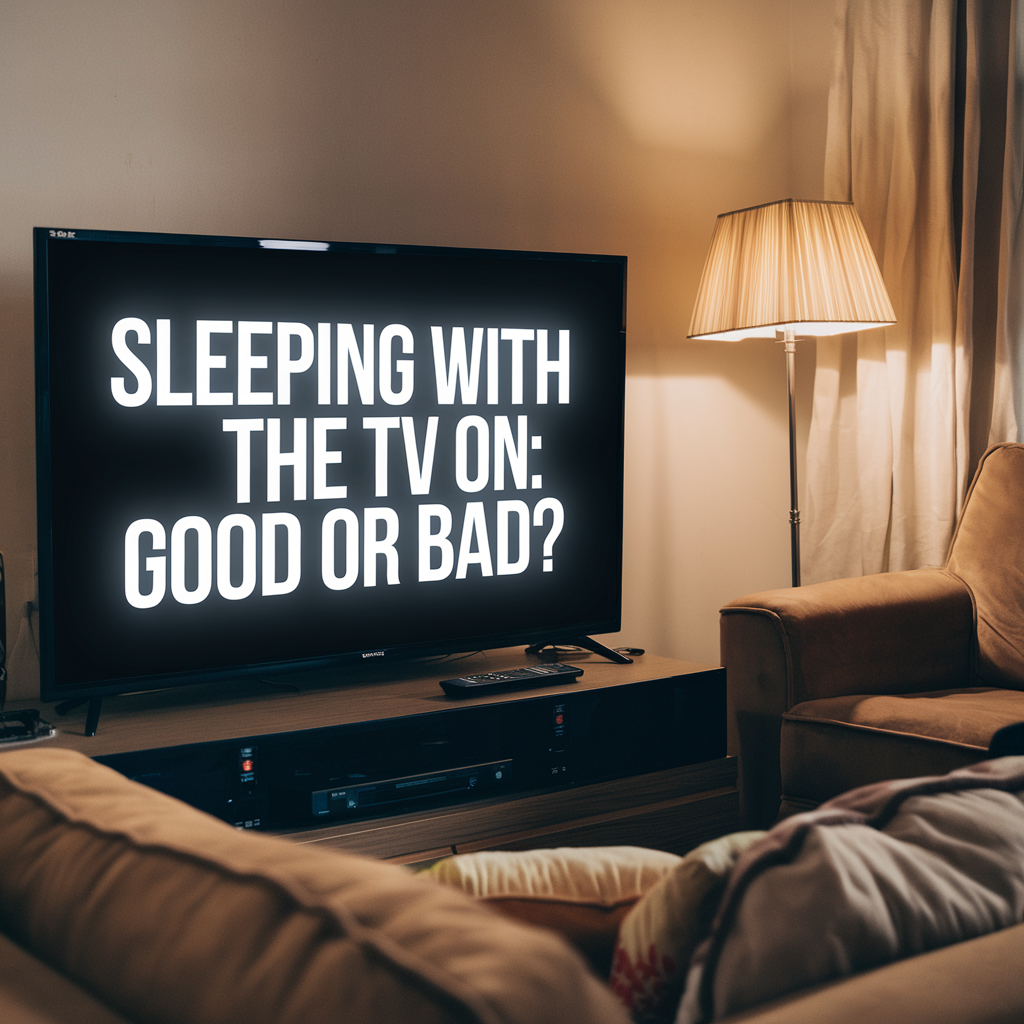
Can Nasal Congestion Cause Insomnia?
Absolutely. A stuffy nose may seem like just an annoyance, but it can completely wreck your sleep. When you’re congested, you’re forced to breathe through your mouth, which leads to:
✔ More snoring and sleep disruptions – Your airway becomes restricted, causing vibrations (aka snoring) that wake you up.
✔ Dry mouth and throat irritation – Breathing through your mouth all night dries out your throat, making it sore and uncomfortable.
✔ Less oxygen intake – Blocked nasal passages reduce airflow to the lungs, causing fragmented sleep and morning fatigue.
✔ Sleep apnea-like symptoms – Chronic congestion can contribute to airway obstruction, leading to brief pauses in breathing while you sleep.
Why Nasal Congestion is Worse at Night
Many people notice that their sinuses feel fine during the day but get severely blocked at night. This happens because:
- Lying down increases sinus pressure, making congestion worse.
- Indoor allergens (dust, pet dander, mold) build up in bedrooms, where we spend hours breathing them in.
- Histamine levels fluctuate at night, causing an increase in allergy symptoms.
How to Breathe Easier at Night (And Finally Sleep)
If congestion is keeping you awake, simple solutions can make a huge difference:
✔ Use an extra pillow to elevate your head and prevent mucus buildup.
✔ Try nasal irrigation (like a neti pot) to clear out allergens before bed.
✔ Apply a warm compress on your sinuses to open nasal passages.
✔ Use nasal strips, like Breathe Right Nasal Strips, to instantly improve airflow and reduce snoring.
✔ Run a humidifier in your bedroom to prevent dry air from irritating your sinuses.
If congestion-related sleep disruptions sound familiar, you might also want to check out How Sleep Apnea Can Kill You and What Happens If You Ignore It—since blocked airways can mimic sleep apnea symptoms.
Next, let’s go over how to actually get good sleep when allergies won’t let you rest.
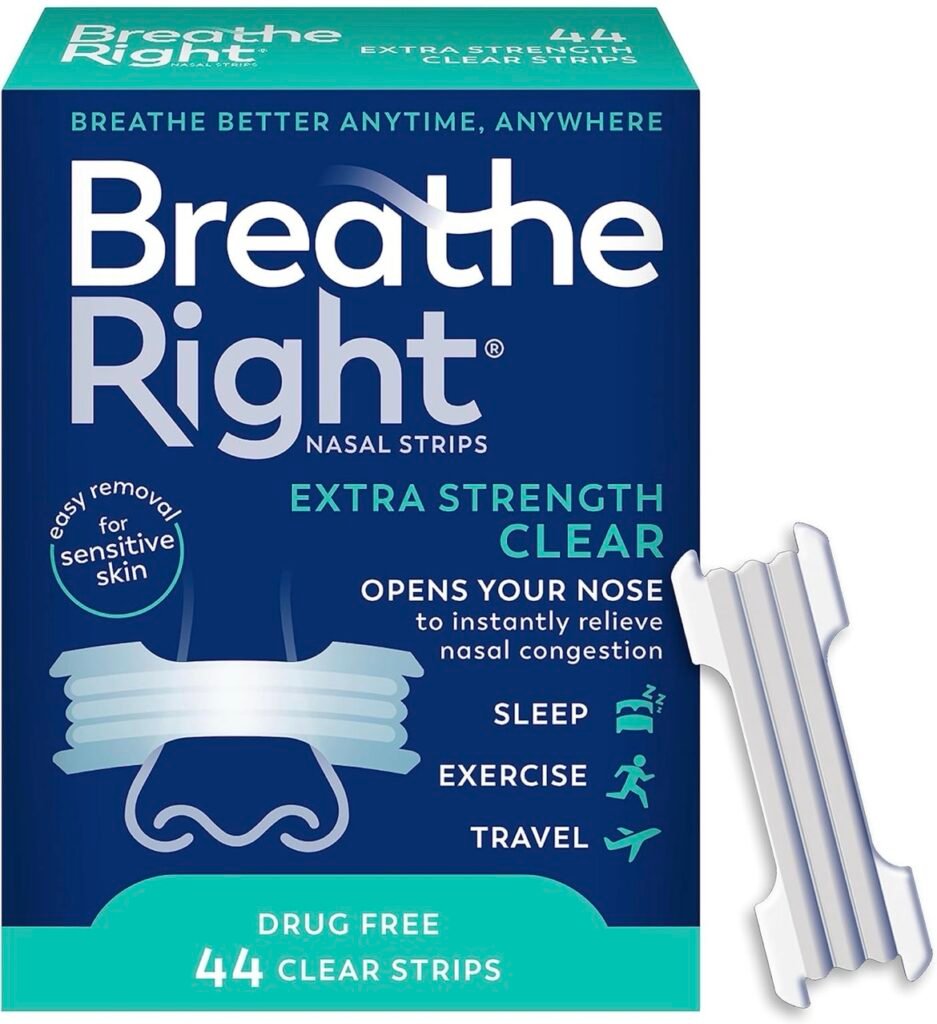
What Helps You Sleep With Allergies?
If allergies are keeping you up at night, you’re not alone. Millions of people struggle with allergy-related insomnia, but the good news is that there are proven ways to sleep better—even during allergy season.
1. Sleep in the Right Position
Your sleeping position can make or break your ability to breathe at night. Lying flat can cause mucus to pool in your sinuses, making congestion worse. Instead, try:
✔ Sleeping with your head elevated using an extra pillow to help drain nasal passages.
✔ Side sleeping to prevent postnasal drip from irritating your throat.
✔ Avoiding sleeping on your back if congestion or snoring is a problem.
2. Open Your Airways Before Bed
Clearing out allergens and reducing inflammation in your nasal passages before bed is key to better sleep.
✔ Use a saline spray or neti pot to flush out allergens trapped in your nose.
✔ Try Breathe Right Nasal Strips like Breathe Right Nasal Strips to physically open up nasal passages for better airflow.
✔ Take a warm shower before bed—the steam helps open your sinuses and washes off pollen and dust.
3. Improve Your Bedroom Air Quality
Your bedroom should be a low-allergen zone since you spend hours breathing in the air while you sleep.
✔ Wash your pillowcases and sheets weekly to remove dust mites and allergens.
✔ Use an air purifier with a HEPA filter to trap pollen, pet dander, and dust.
✔ Vacuum with a HEPA filter to prevent allergens from building up in carpets and rugs.
✔ Keep pets out of the bedroom (even if you love them) to reduce exposure to pet dander.

4. Be Careful With Medications
Many people turn to antihistamines for allergy relief, but not all are good for sleep. Some medications, like decongestants, can actually keep you awake.
✔ If you need allergy meds, choose non-drowsy antihistamines during the day and drowsy formulas at night.
✔ Avoid decongestants (like pseudoephedrine) before bed—they stimulate the nervous system and can lead to even worse insomnia.
5. Try Natural Remedies for Allergy Relief
Some people prefer natural alternatives to manage their allergies without relying on medication.
✔ Quercetin – A natural antihistamine found in foods like onions and apples.
✔ Butterbur – A plant extract shown to reduce inflammation and nasal congestion.
✔ Local honey – May help desensitize your body to seasonal allergens over time.
6. Establish a Sleep-Boosting Nighttime Routine
Since allergies already make it hard to fall asleep, sticking to a relaxing bedtime routine can help signal to your brain that it’s time to rest.
✔ Dim the lights an hour before bed to boost melatonin production.
✔ Use a white noise machine if you’re dealing with noisy breathing or snoring.
✔ Try meditation or breathing exercises to calm your nervous system before sleep.
🔗 If allergies aren’t your only sleep issue, check out The Ultimate Guide to Overcoming Sleep Issues: Tips and Products for expert-backed strategies to get better rest.
Next, let’s talk about why allergies always seem worse at night—and what you can do to prevent that.
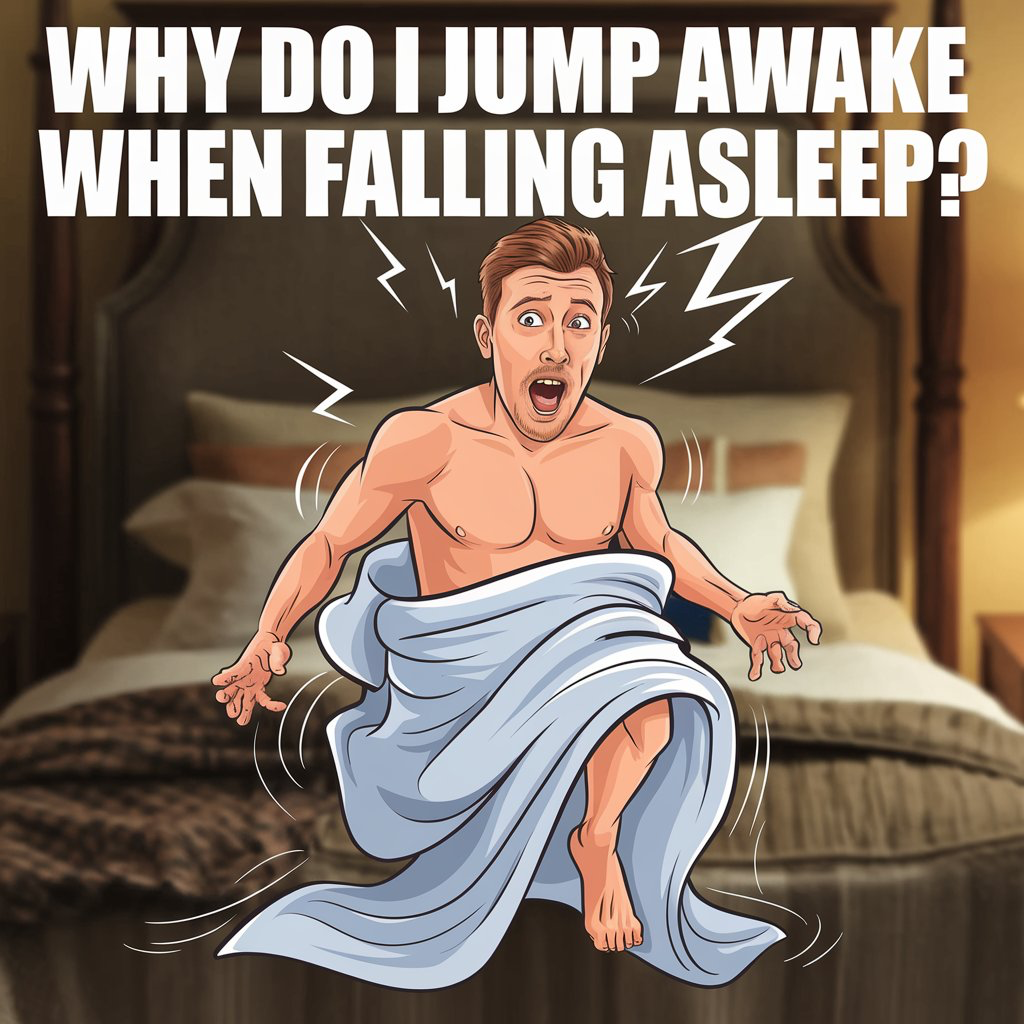
Why Do Allergies Get Worse at Night?
Ever notice that your allergies seem fine during the day but suddenly get unbearable at night? It’s not just in your head—there’s a scientific reason behind it.
1. Pollen and Dust Build Up in Your Bedroom
Your bedroom may be a major source of allergens without you realizing it. Pollen, dust mites, and pet dander accumulate in:
✔ Pillows, sheets, and blankets
✔ Carpets and rugs
✔ Curtains and upholstered furniture
Since you spend hours breathing in the air while you sleep, exposure to allergens is higher at night.
2. Lying Down Increases Congestion
When you’re upright during the day, mucus naturally drains from your sinuses. But when you lie down, fluid buildup increases, leading to:
✔ Stuffy nose and sinus pressure
✔ Postnasal drip, causing coughing or throat irritation
✔ More snoring and disrupted sleep
This is why sleeping with your head elevated can make a big difference.
3. Nighttime Histamine Surges
Your body naturally releases higher levels of histamines at night, which can make allergy symptoms worse. If you’ve ever woken up with a runny nose, sneezing, or itchy eyes, this is why.
4. Poor Indoor Air Quality
✔ Dry air can irritate your nasal passages, making congestion worse.
✔ Mold or pet dander lingers in the air, triggering allergic reactions.
✔ Lack of ventilation keeps allergens trapped inside.
Running an air purifier with a HEPA filter in your bedroom can remove these allergens and help you breathe easier.
How to Prevent Nighttime Allergy Flare-Ups
✔ Wash your sheets weekly in hot water to kill dust mites.
✔ Shower before bed to remove pollen and allergens from your skin.
✔ Use hypoallergenic pillowcases and mattress covers.
✔ Keep pets out of the bedroom (even if they love cuddling).
✔ Run a humidifier if dry air makes your symptoms worse.
If allergies are still keeping you up, check out How Sleep Apnea Can Kill You and What Happens If You Ignore It since congestion-related sleep disturbances can mimic sleep apnea symptoms.
Next, let’s go over a nighttime routine designed specifically for allergy sufferers to help you sleep better.

The Best Nighttime Routine for Allergy Sufferers
If allergies are making it impossible to sleep, changing your nighttime routine can make a huge difference. The goal is to reduce allergen exposure, clear your airways, and set yourself up for deeper sleep.
1. Take a Shower Before Bed
✔ Wash off pollen, dust, and pet dander that’s clinging to your skin and hair.
✔ Steam from the shower helps clear your sinuses and make breathing easier.
✔ Change into fresh, clean pajamas that haven’t been exposed to allergens.
2. Keep Your Bedding Allergen-Free
✔ Use hypoallergenic pillowcases and mattress covers to block dust mites.
✔ Wash sheets and pillowcases once a week in hot water.
✔ Swap out feather pillows and wool blankets, which can trap allergens.
3. Open Up Your Airways Before Sleep
✔ Use a saline nasal spray or neti pot to flush out allergens.
✔ Apply a warm compress to loosen mucus and reduce sinus pressure.
✔ Try Breathe Right Nasal Strips to instantly improve airflow and reduce snoring.
4. Control Your Bedroom Air Quality
✔ Run an air purifier with a HEPA filter to trap allergens.
✔ Keep humidity between 40–50%—too dry and your sinuses get irritated, too humid and mold can grow.
✔ Vacuum and dust at least once a week, especially if you have carpet.
5. Avoid Sleep Disrupting Allergy Medications
✔ Take drowsy antihistamines at night (like Benadryl) instead of daytime formulas.
✔ Avoid decongestants (like pseudoephedrine) before bed—they keep you awake.
✔ Try natural antihistamines like quercetin or butterbur if you prefer a drug-free option.
6. Follow a Sleep-Boosting Nighttime Routine
✔ Dim lights an hour before bed to encourage melatonin production.
✔ Use a white noise machine to mask snoring or breathing disturbances.
✔ Try meditation or breathing exercises to reduce nighttime anxiety.
🔗 Need more help fixing your sleep? Check out The Ultimate Guide to Overcoming Sleep Issues: Tips and Products for expert-backed solutions.
By following these steps, you can take control of your allergies and finally get the restful sleep you deserve.
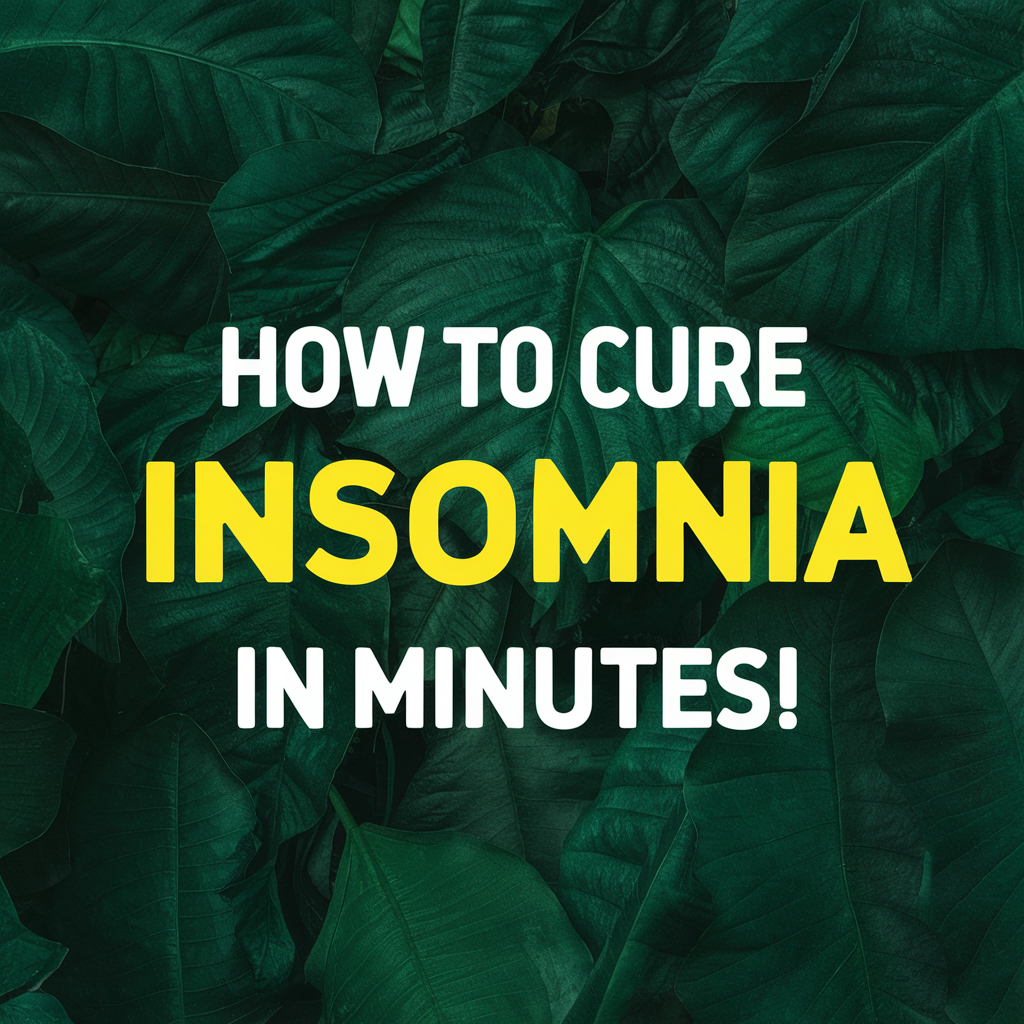
Long-Term Strategies to Fix Allergies and Insomnia
Managing allergies for better sleep isn’t just about short-term relief—you need a long-term strategy to prevent allergy-related insomnia from coming back night after night.
1. Strengthen Your Immune System
A well-balanced immune system can reduce allergy symptoms over time, making sleep disturbances less frequent.
✔ Eat anti-inflammatory foods like leafy greens, fatty fish, and berries.
✔ Stay hydrated—water helps flush out allergens and keeps mucus thin.
✔ Reduce processed foods and sugar, which can contribute to inflammation.
2. Identify Hidden Allergens
Many people live with allergies for years without realizing their true triggers. If you suspect allergies but can’t pinpoint the cause:
✔ Try an elimination diet—remove common allergens like dairy or gluten and track your symptoms.
✔ Consider allergy testing to identify environmental and food-related triggers.
✔ Pay attention to patterns—do symptoms flare up in certain locations or seasons?
3. Improve Your Daily Environment
✔ Keep your home clutter-free to reduce dust accumulation.
✔ Choose hardwood floors over carpets, which trap allergens.
✔ Use fragrance-free laundry detergents and cleaning products to avoid irritants.
4. Consider Immunotherapy (Allergy Shots or Drops)
For severe allergies, allergy shots or sublingual drops can train your immune system to become less reactive over time. This can lead to:
✔ Fewer allergy flare-ups and less nighttime congestion.
✔ Reduced reliance on antihistamines and medications.
✔ Long-term improvement in sleep quality.
5. When to See a Doctor for Allergy-Related Insomnia
If you’ve tried allergy-proofing your home and adjusting your sleep routine, but still struggle to get good rest, it may be time to see an allergy specialist or sleep doctor.
✔ If congestion regularly wakes you up at night.
✔ If you feel constantly exhausted, even after a full night’s sleep.
✔ If you suspect an underlying sleep disorder like sleep apnea is involved.
🔗 For more serious sleep issues, check out How Sleep Apnea Can Kill You and What Happens If You Ignore It—since ongoing congestion and airway issues can mimic sleep apnea symptoms.
By focusing on both short-term relief and long-term prevention, you can finally break the cycle of allergies and insomnia, getting the deep, restorative sleep your body needs.
As an Amazon Associate we earn from qualifying purchases through some links in our articles.
